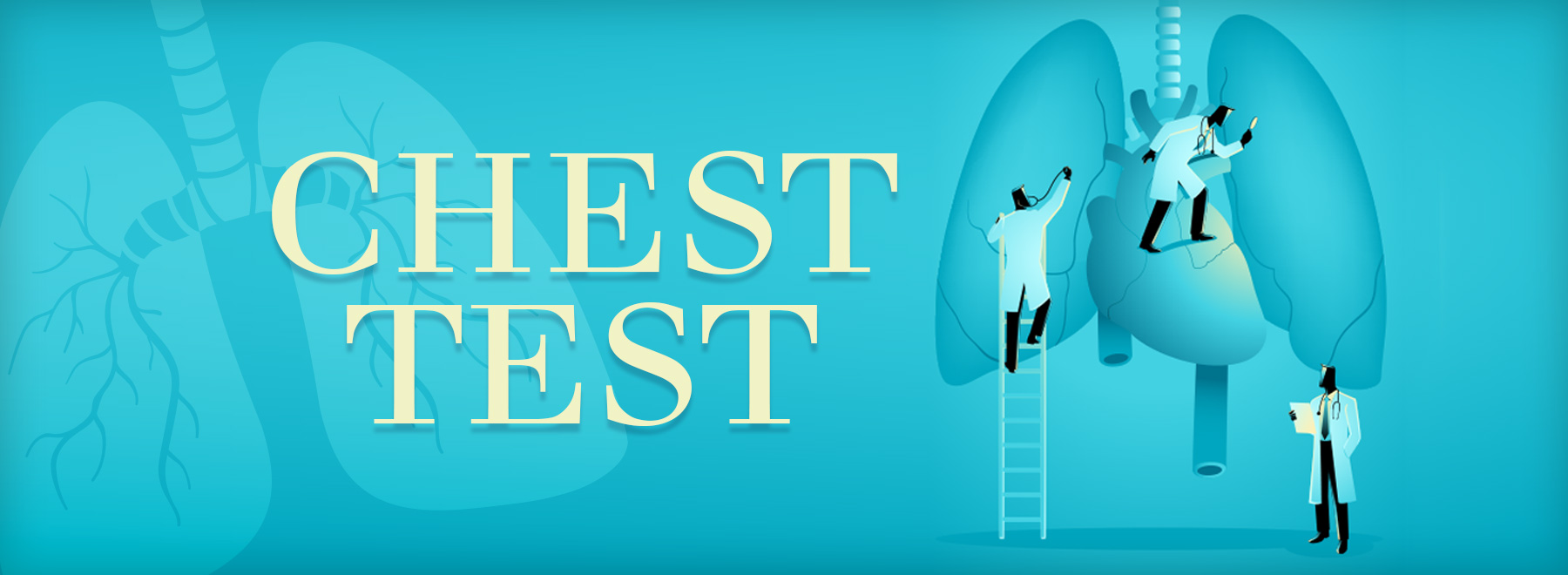Lung cancer early detection, treatment saves lives
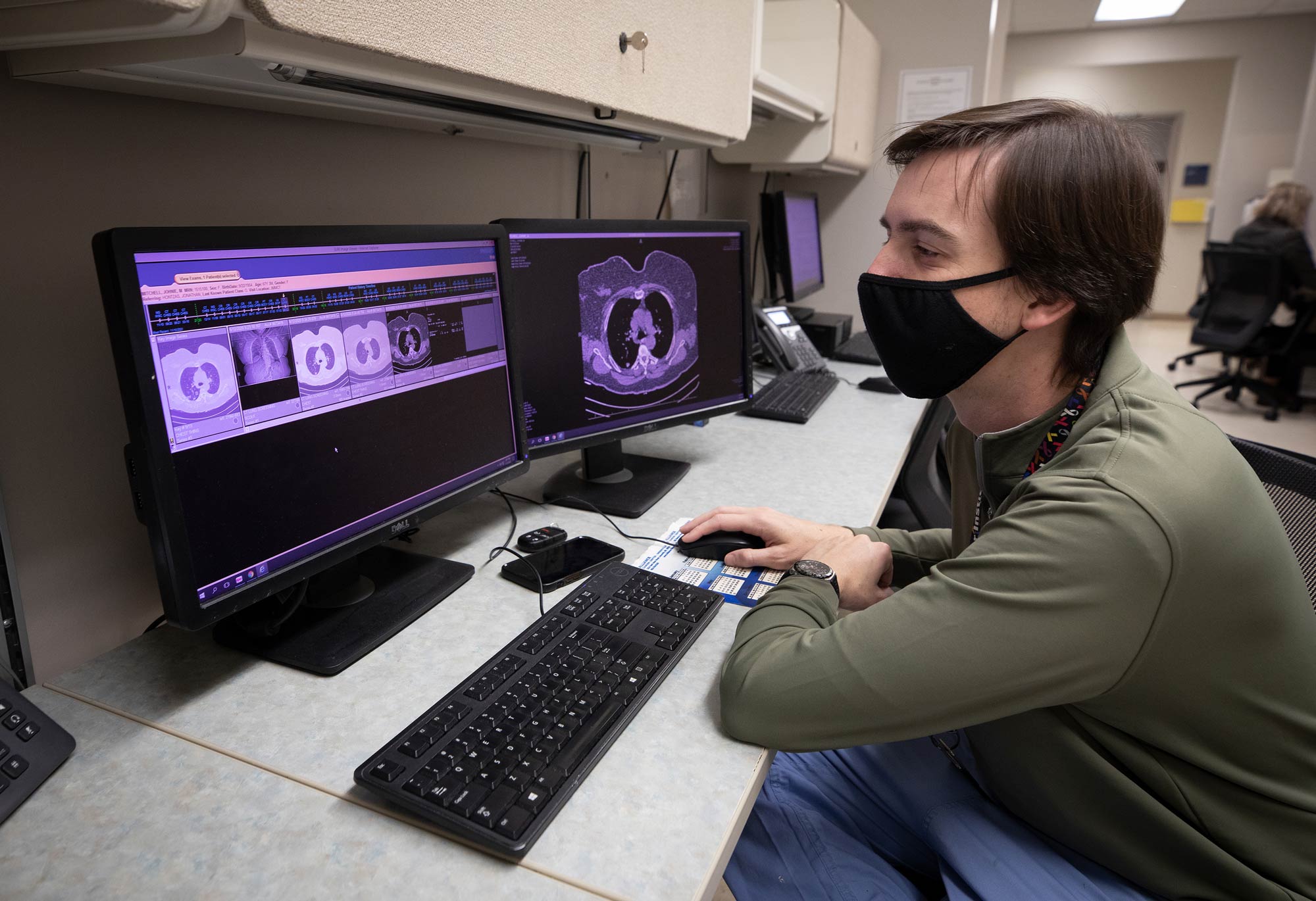
Johnnie Mitchell quit smoking after she was diagnosed in 2012 with both throat and kidney cancer, but her years of tobacco use came into question in 2020.

“I was having some pain, and it got so that I would cough and cough all the time,” said Mitchell, 67, who lives in Itta Bena.
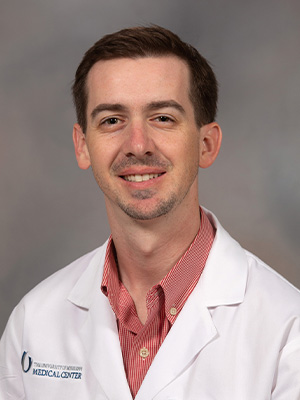
Because of the pandemic, she opted to forego an in-person trip to the University of Mississippi Medical Center to see a provider. Instead, she had a June telehealth visit with Jonathan Hontzas, a nurse practitioner and director of the Medical Center’s lung cancer early detection program.
Hontzas suggested Mitchell undergo lung cancer screening to better diagnose her illness. It revealed a lung nodule, and a biopsy showed it was cancerous – but caught very early.
“At first I said, ‘Here we go again,’” said Mitchell, who also beat stomach cancer in 2003. “But Jonathan said, ‘We got this. We got this in time.’”
She had surgery that August and today is cancer-free. But if the nodule hadn’t been discovered early, it might be a different story.
The sooner someone who has high risk is screened, the better their chances of survival. “Lung cancer is pretty notorious for showing up in the later stages,” Hontzas said. “If you have a primary (cancer) mass, the volume can double every three months.”
As the lung cancer early detection program approaches its 1,000th screen over a 12-month period, UMMC experts are reminding patients that screening is easy and can save lives.
The Medical Center performs lung cancer screening using a low-dose CT scan, exposing patients to a minimum amount of radiation. Studies show there’s about a 20 percent mortality reduction for patients screened via a yearly low-dose CT scan versus a simple X-ray, Hontzas said.
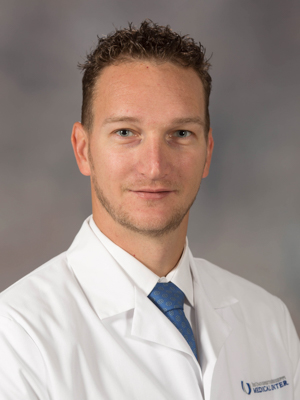
“Lung cancer kills more people every year than any other cancer,” said Dr. Michal Senitko, assistant professor of medicine and surgery and section chief of interventional pulmonology. “The challenge has always been in early detection. Before low-dose CT scan, we didn’t have a good tool to truly find the cancer very early.”
If Mitchell “hadn’t had the scan, or if she had not gotten a scan for another reason, we might have found it when it was in a much more advanced stage,” said Senitko, who co-directs the early detection program with Hontzas.
“We joke that the most common way to find lung cancer is a fall from a deer stand. That’s when people get imaging on their chest, and other things are found.”
Lung cancer in Mississippi can be socioeconomic, with many cases coming from rural and low-income residents. “We have a higher percentage of smokers compared to other states,” Hontzas said. “We tend to see patients in the later stages of cancer because of problems with access to care, and because our patient population has a lower health insurance rate.”
Although patients can simply call and make an appointment to be screened, most are referred by their primary care provider because past or current smoking or family history put them at higher risk.
And, there’s good news for Medicare patients needing the screening. Medicare previously covered the expense for patients ages 55-77 with a history of at least 30 “pack years,” or one pack of cigarettes per day for 30 years. That’s been revised to cover ages 50-77, with a minimum 20 pack years, or one pack of cigarettes per day for 20 years, or one-half a pack a day for 40 years.
“We have a quick clinic visit with them to make sure they qualify for the scan and understand the risks and benefits, and we provide counseling on smoking cessation,” Hontzas said. “After that, you just walk down the hall and receive your scan, which only takes seconds. There’s no pain, no needles involved, and no drinking anything.”
Those with normal results receive a letter, and those whose scans show areas of concern receive a phone call from the lung screening team. They’re referred to thoracic oncology and have a smooth continuity of care.
“Everything is expedited,” Hontzas said. “There’s significantly less delay in treatment, because the people reviewing their scans are the people we refer them to. This cuts out several weeks in the process that they would experience if they were referred from outside the Medical Center.”
Patients with suspicious scans often receive a bronchoscopy to obtain a tissue biopsy. “I can schedule that immediately,” Hontzas said.
Results of the biopsy are discussed during a tumor conference, a gathering of doctors that can include pathologists, surgeons and medical and radiation oncologists. The patient is fast-tracked for appointments with the specialists who will treat them. “Most of these appointments can be done the same day,” Hontzas said.
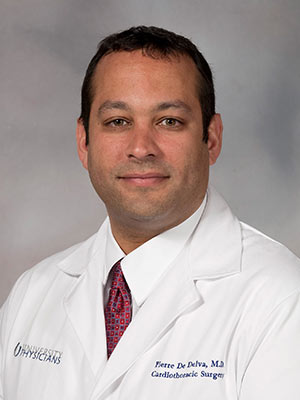
Surgeries are performed by providers in the Division of Thoracic Surgery led by Dr. Pierre De Delva, associate professor of cardiothoracic surgery.
Patients who are smokers are referred to UMMC’s ACT Center for Tobacco Treatment, Education and Research. The Center at the Jackson Medical Mall, staffed by counselors and physicians with years of experience fighting tobacco use, helps patients become tobacco-free.
The Medical Center recently acquired another tool for prevention, detection, diagnosis and treatment of lung cancer: an artificial intelligence software that in essence ferrets out potential cancers on the CT scans of patients who underwent a screening for another reason – for example, stroke or heart pain.
UMMC is the only institution in the state using the software, and it’s a game-changer, Senitko said. Not only can the software pickup on a nodule, it can also provide a percentage chance that the nodule is either currently cancerous, or will be cancerous in the future.
“We hope that artificial intelligence software will help us to risk-stratify those nodules to those that we should be more direct with, or to shorten the periods between scans or biopsies because a particular nodule has the features of cancer,” Senitko said.
Just five years ago, Hontzas said, the Medical Center performed about 150 lung cancer screenings annually.
The huge increase “is great, but we are still scanning less than 10 percent of the eligible population needing screening,” Hontzas said. “We want to continue to significantly grow our lung screening program to really make a difference.”
To make an appointment for lung screening or for more information, call UMMC Pulmonary Medicine at (601) 984-5864.
The above article appears in CONSULT, UMMC’s monthly e-newsletter sharing news about cutting-edge clinical and health science education advances and innovative biomedical research at the Medical Center and giving you tips and suggestions on how you and the people you love can live a healthier life. Click here and enter your email address to receive CONSULT free of charge. You may cancel at any time.



